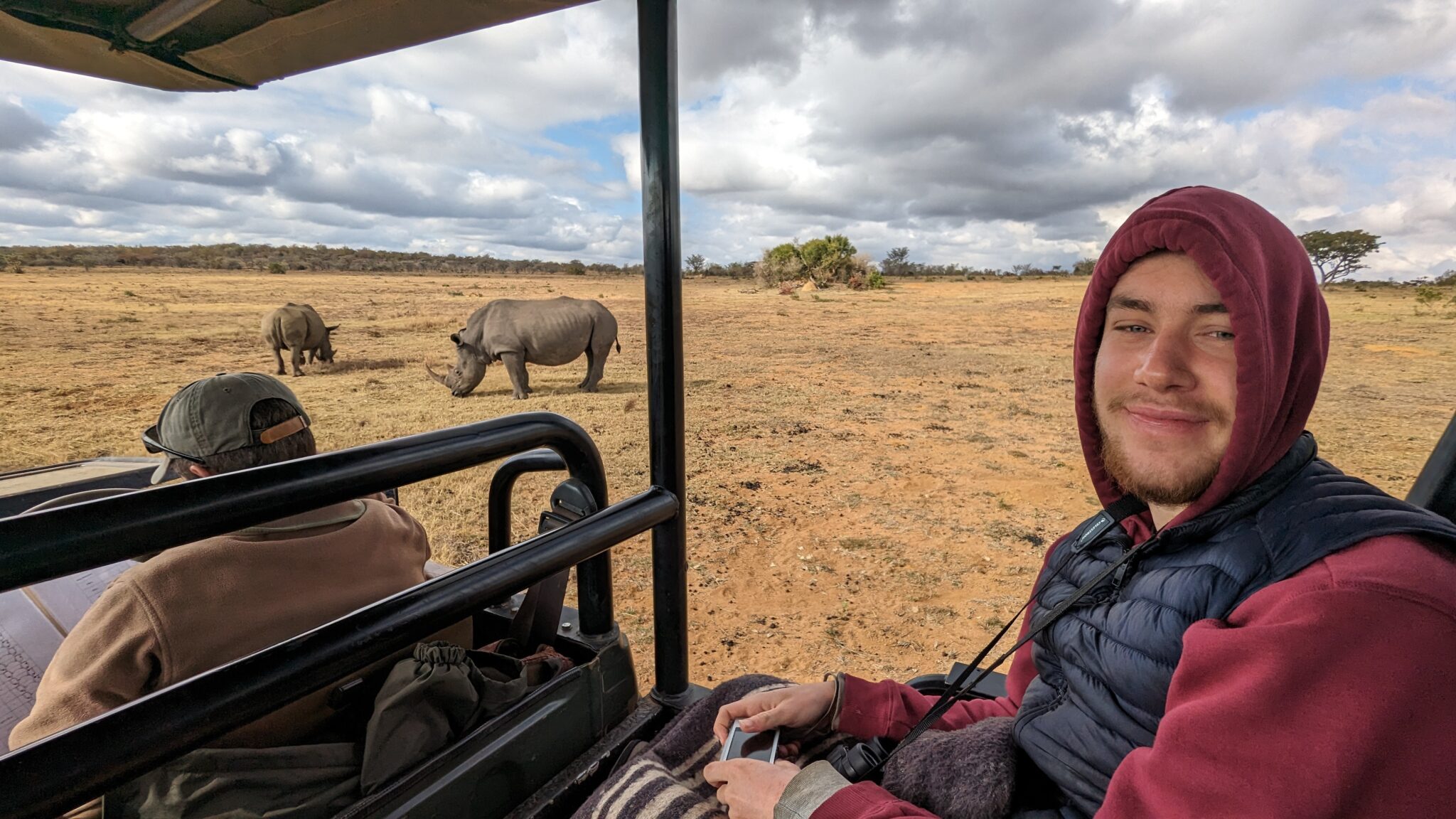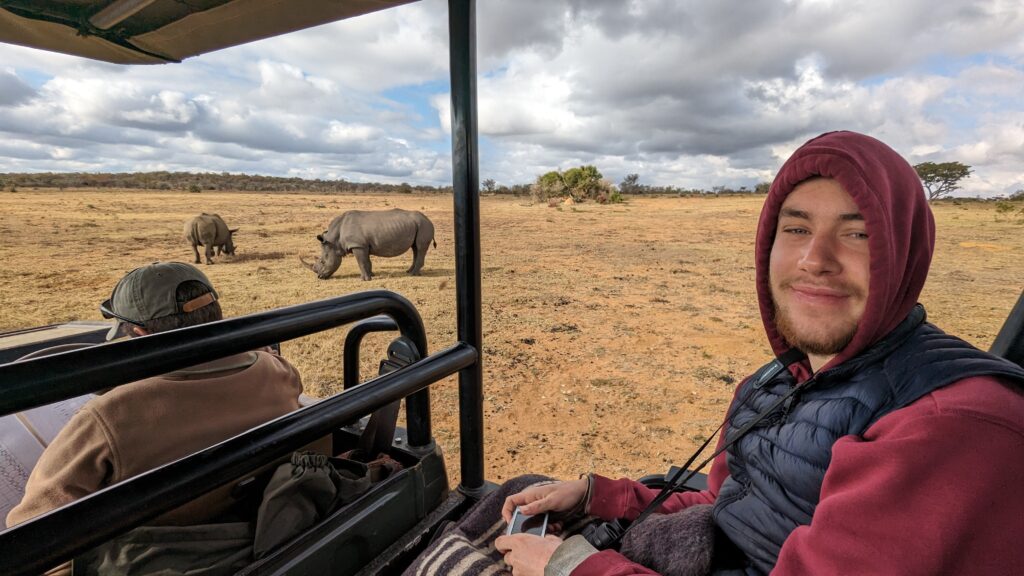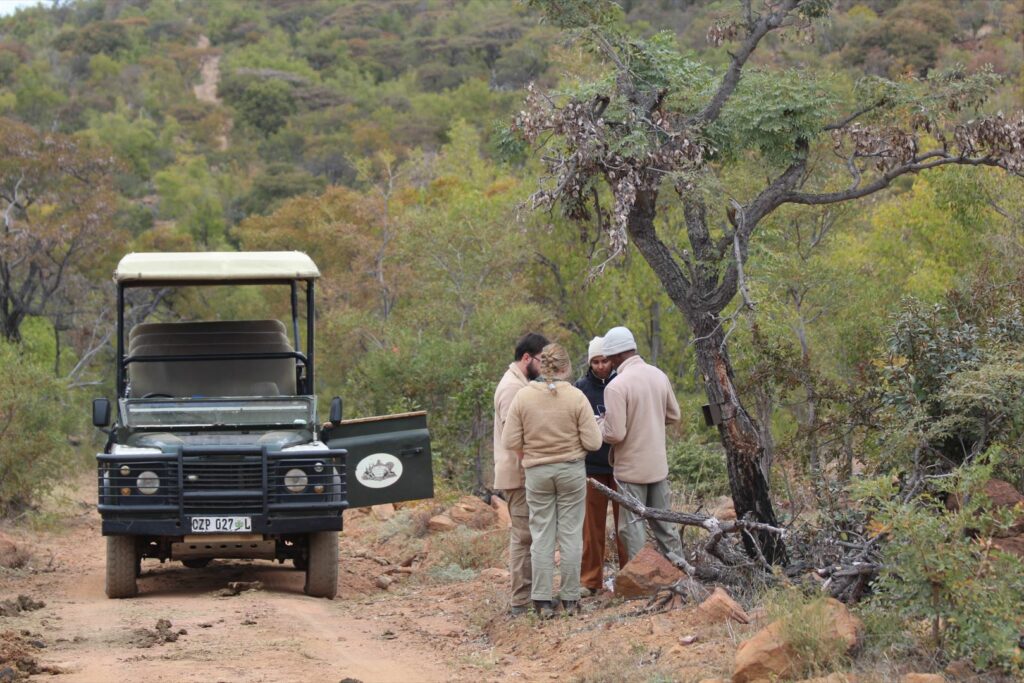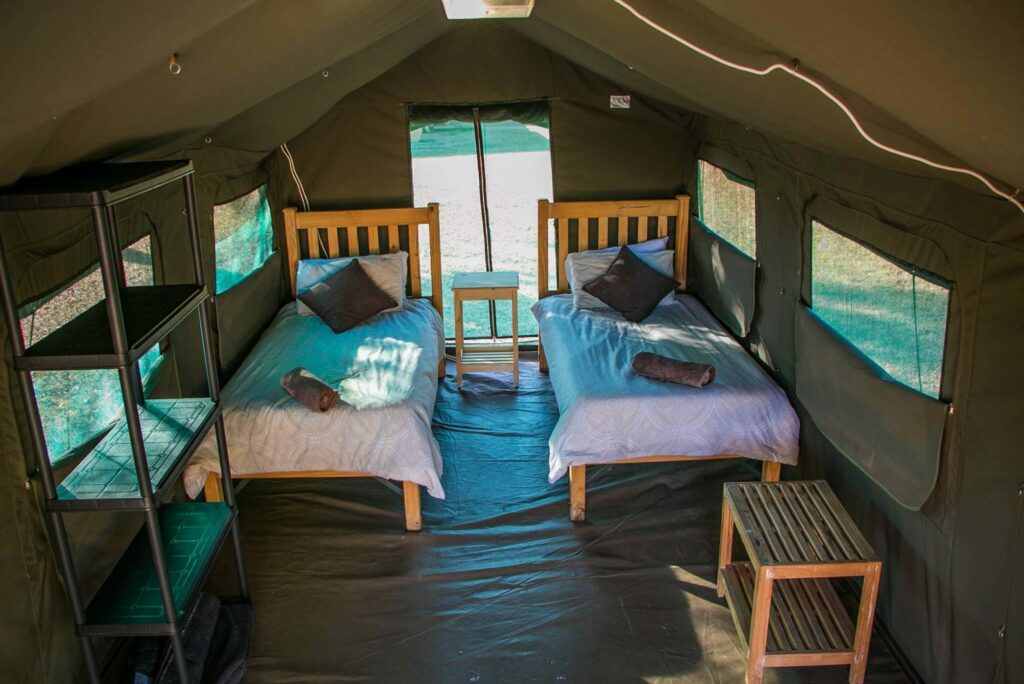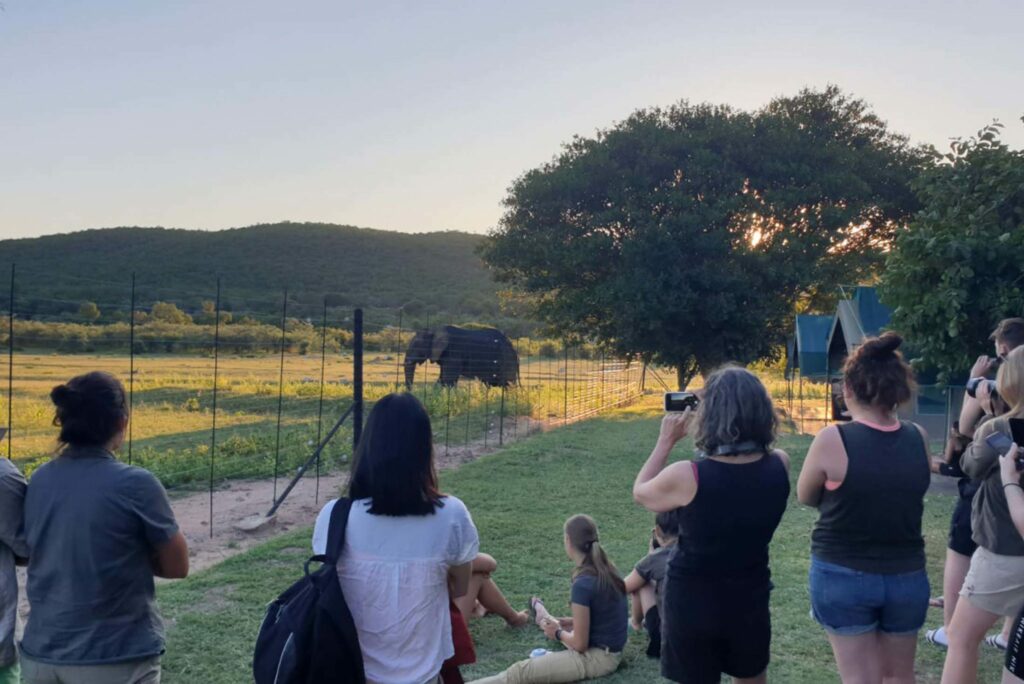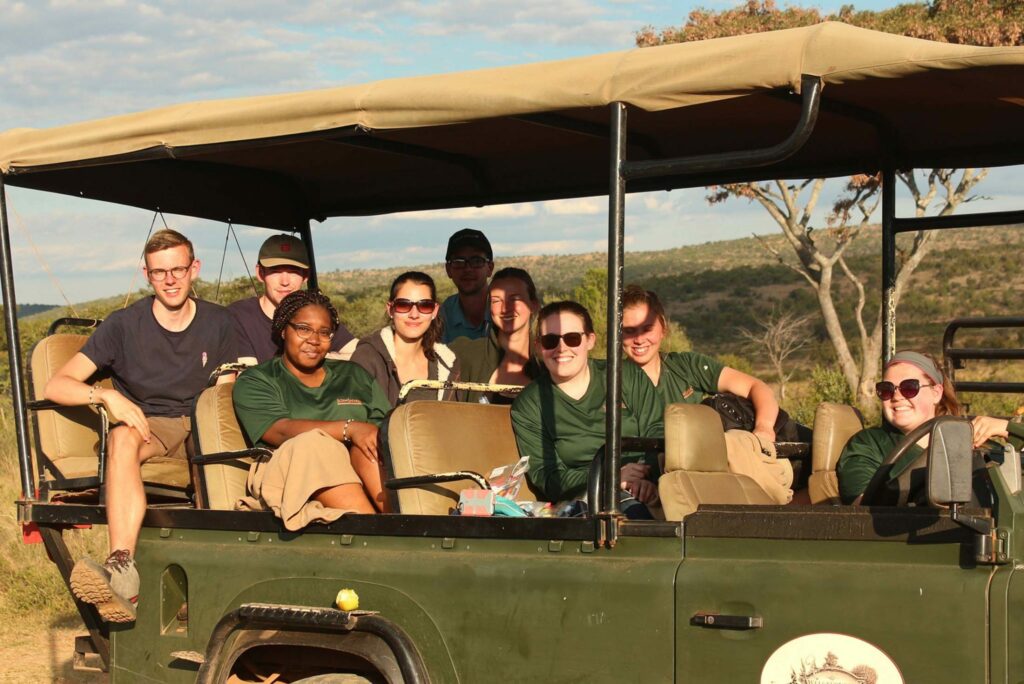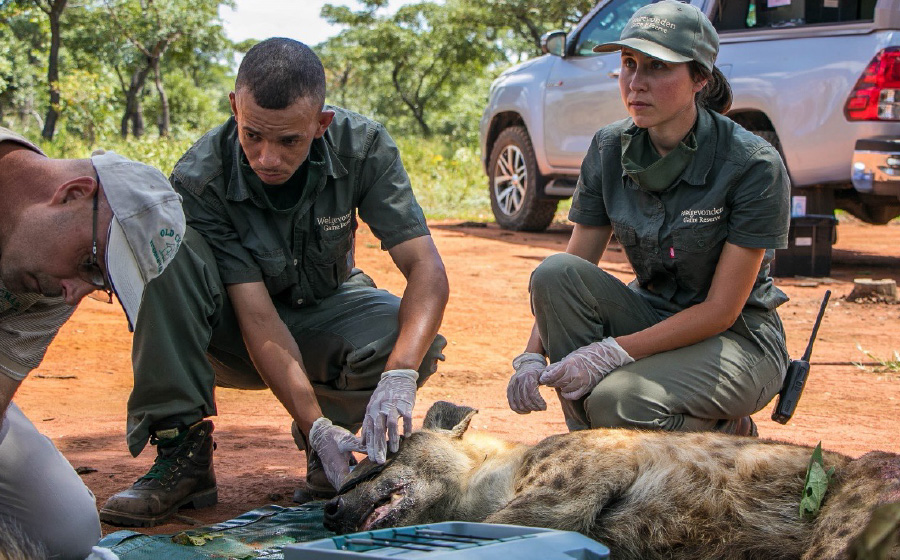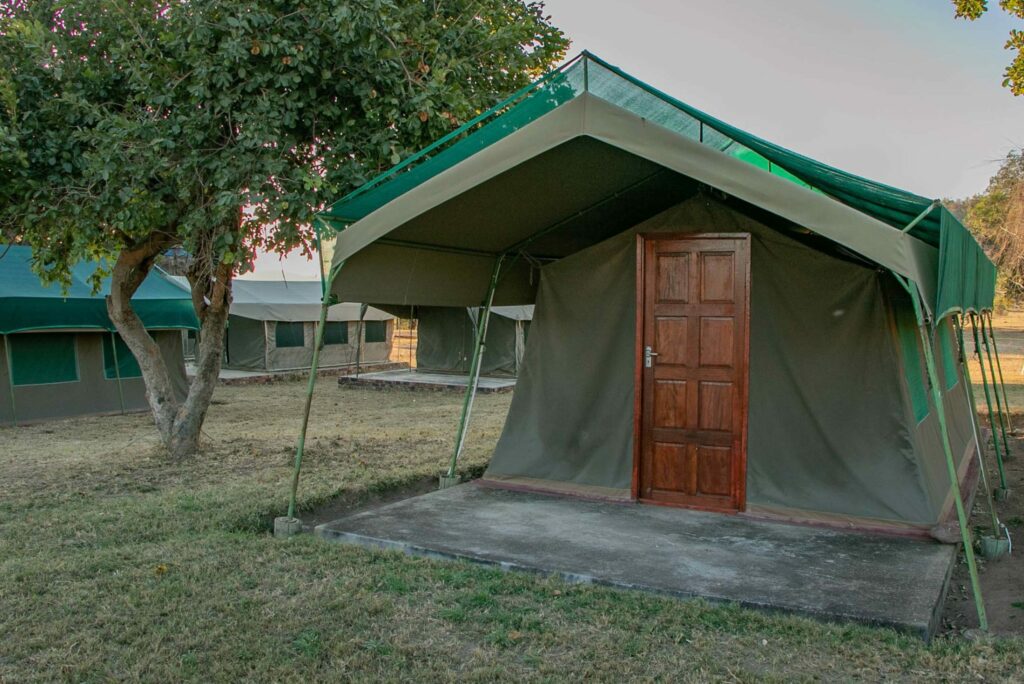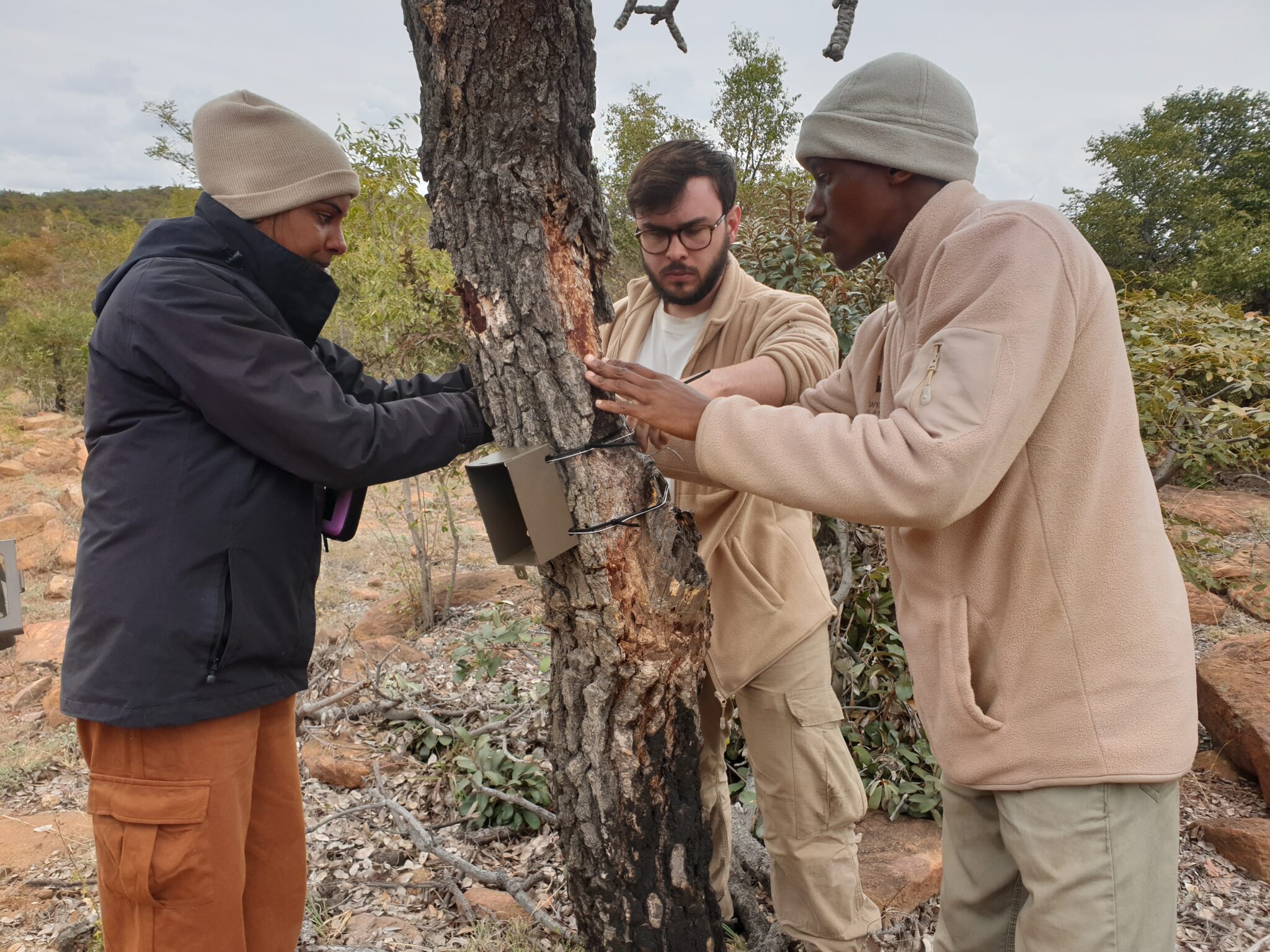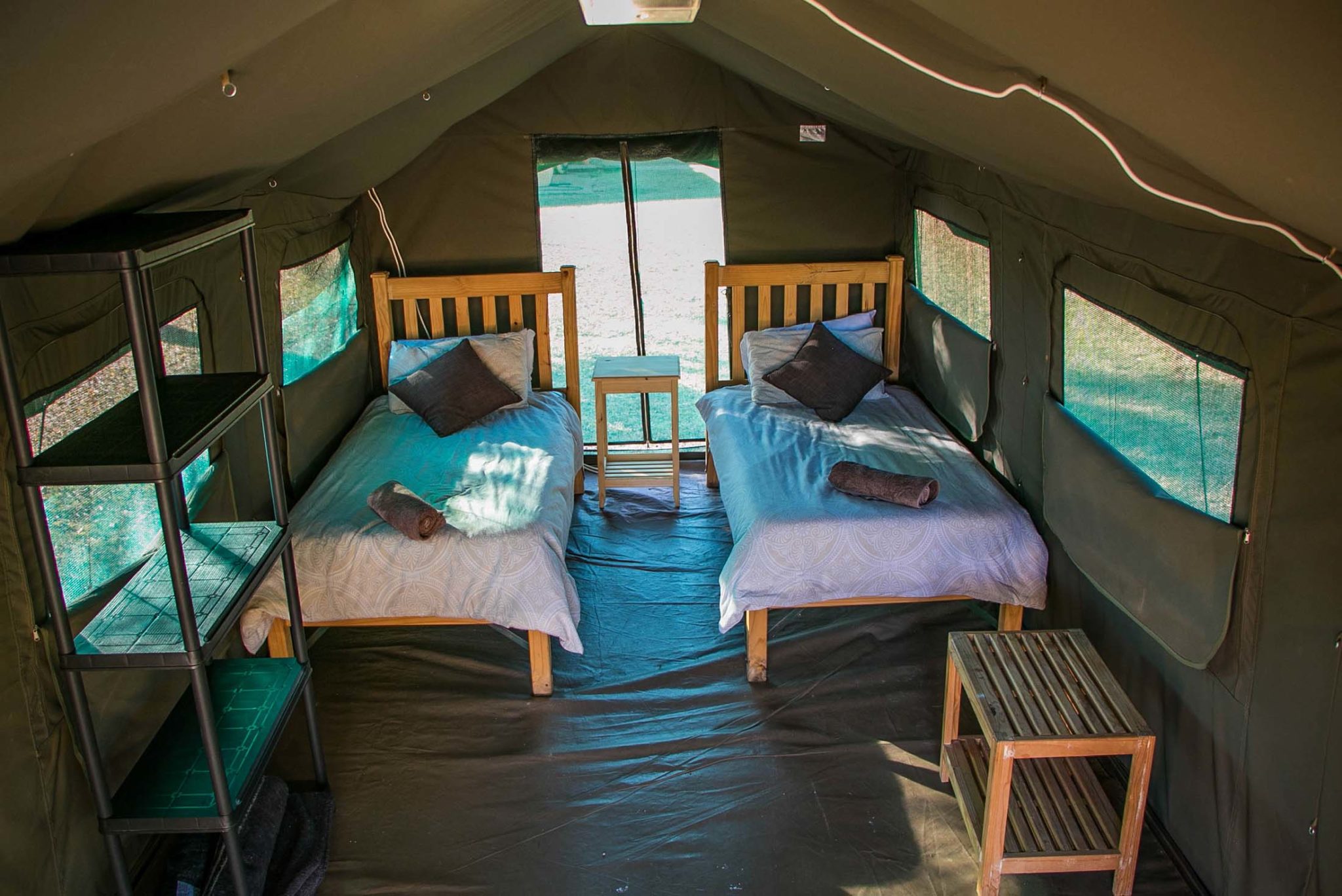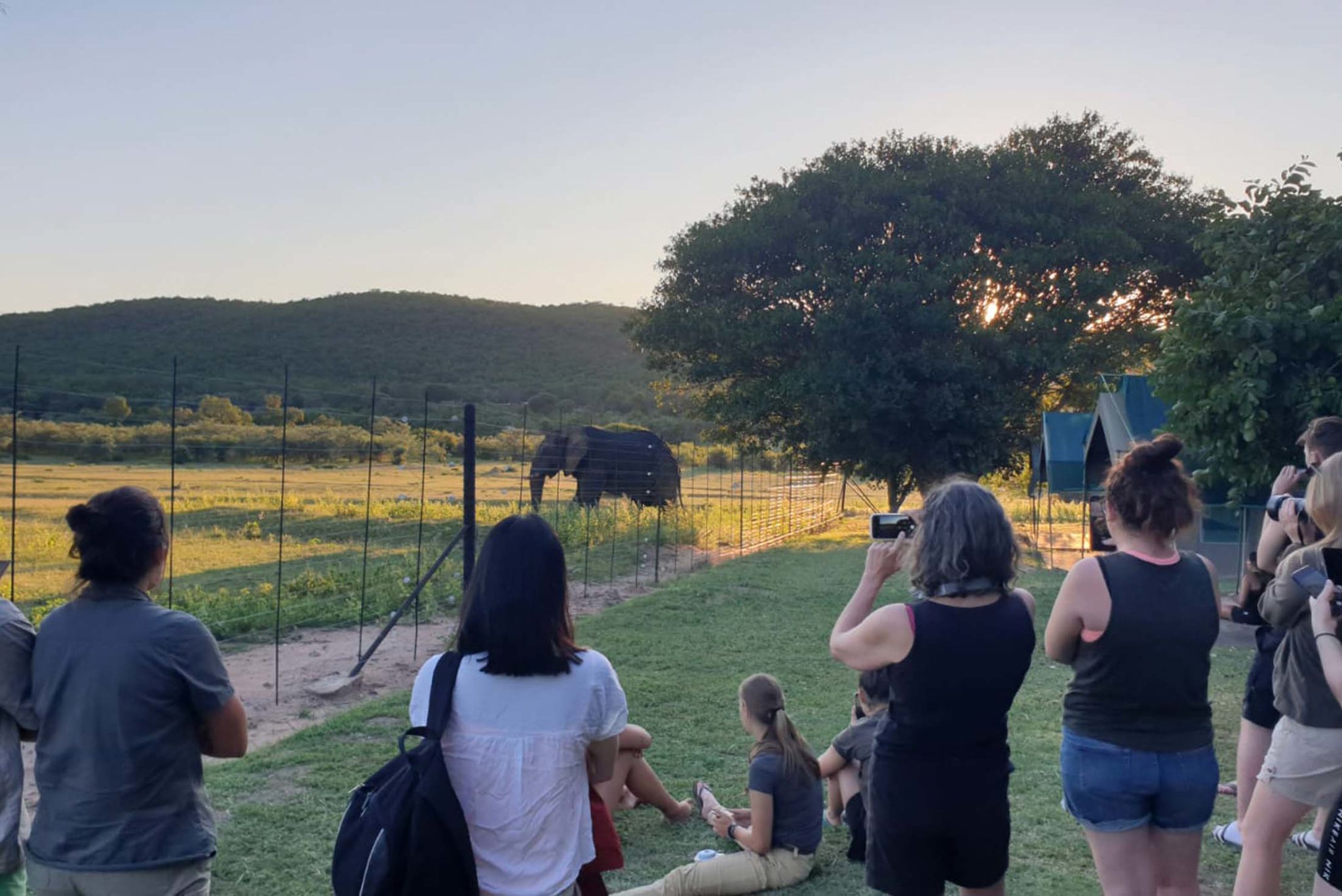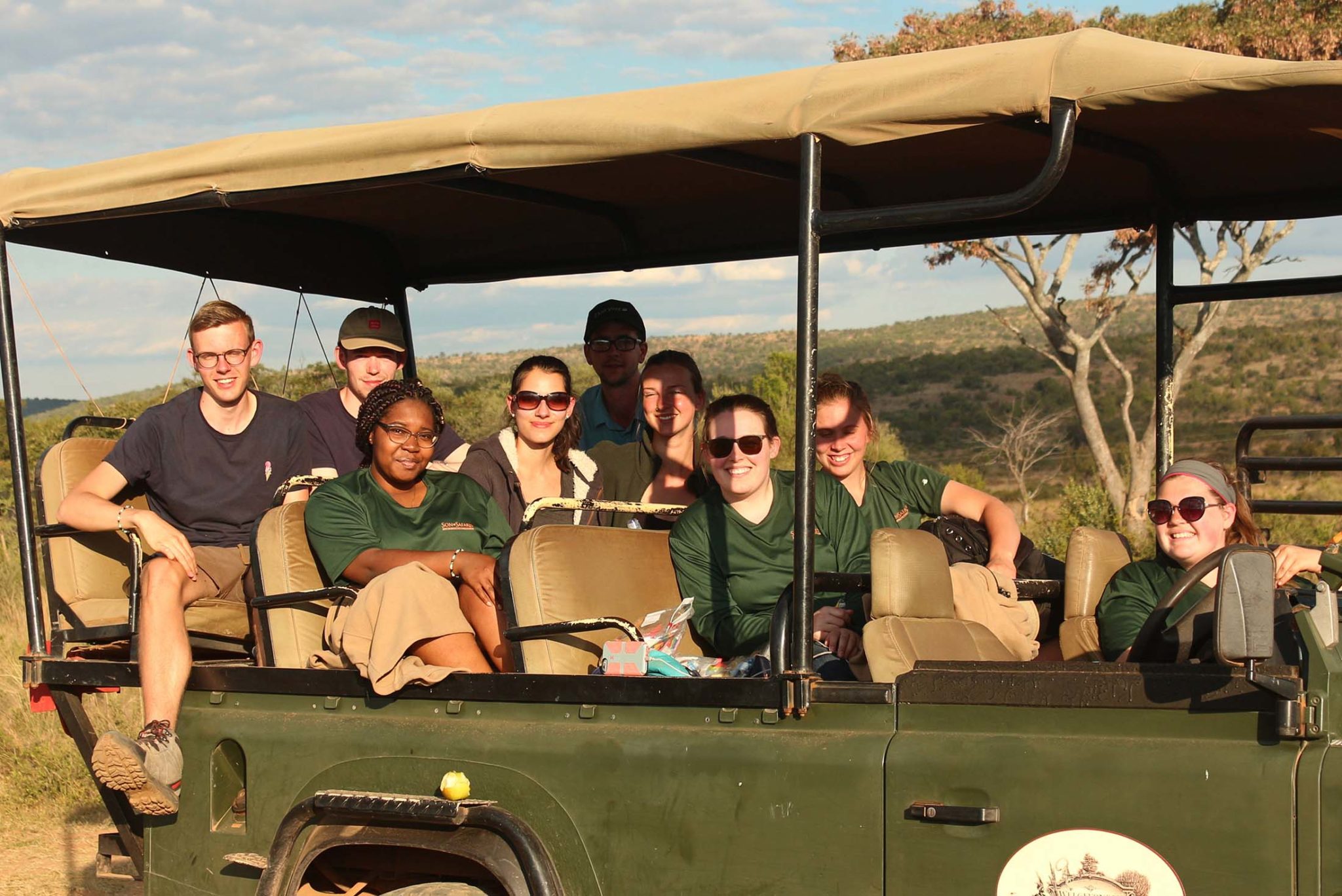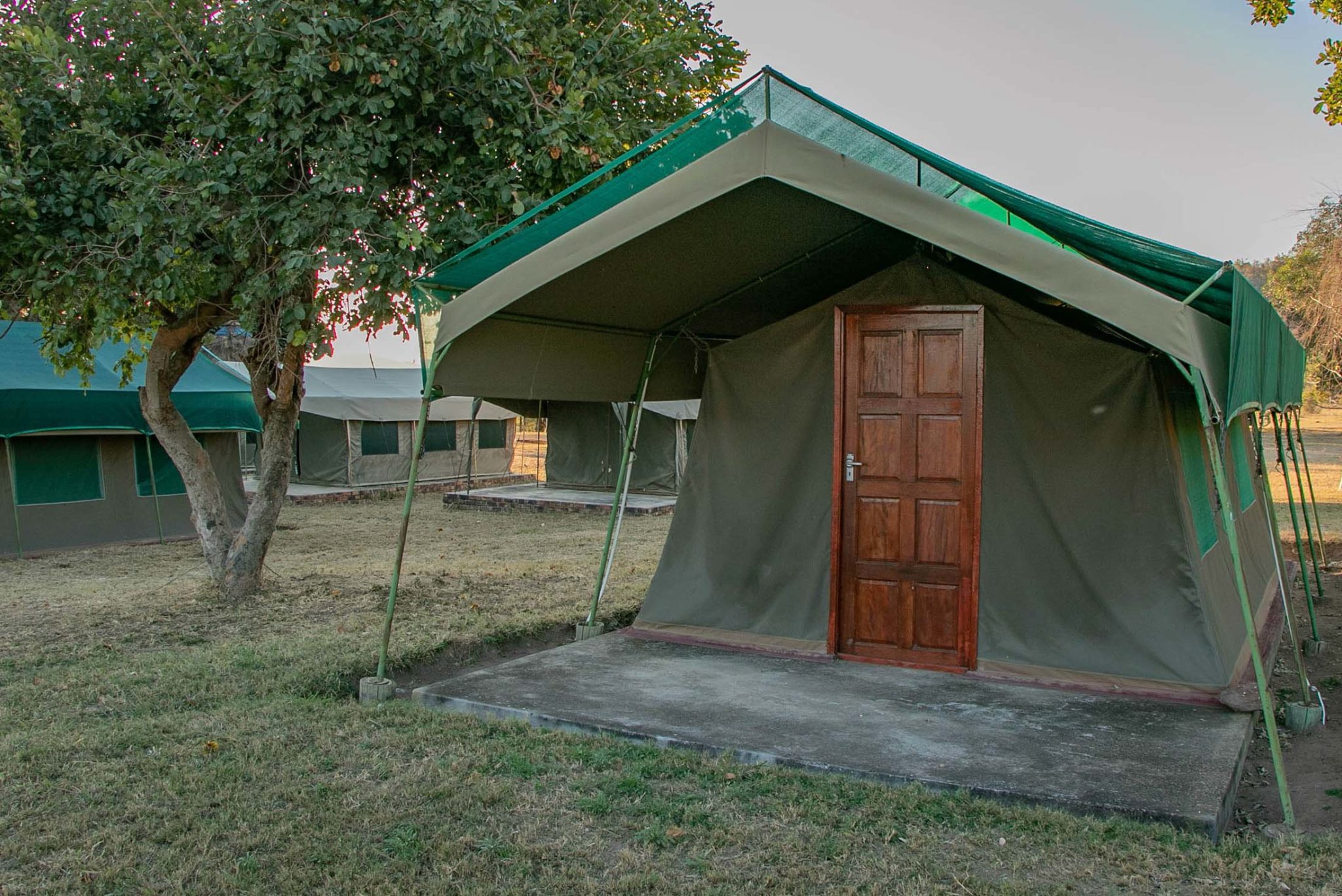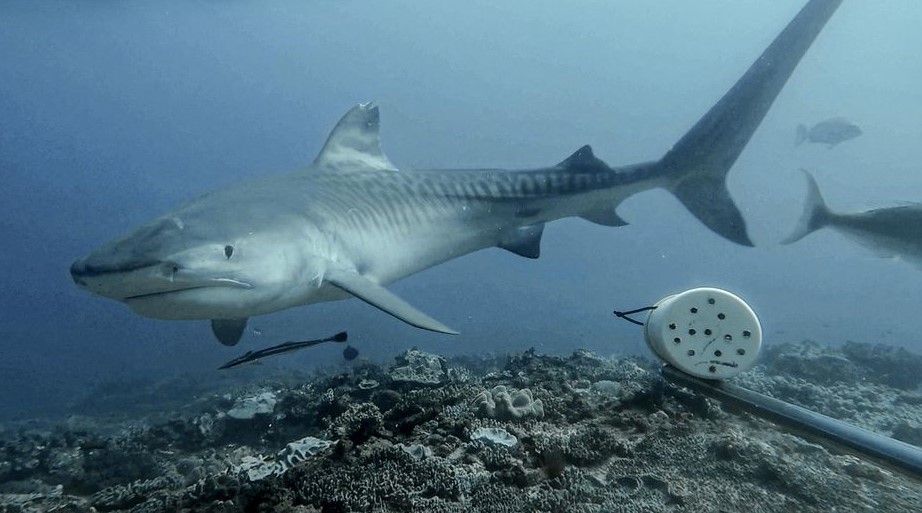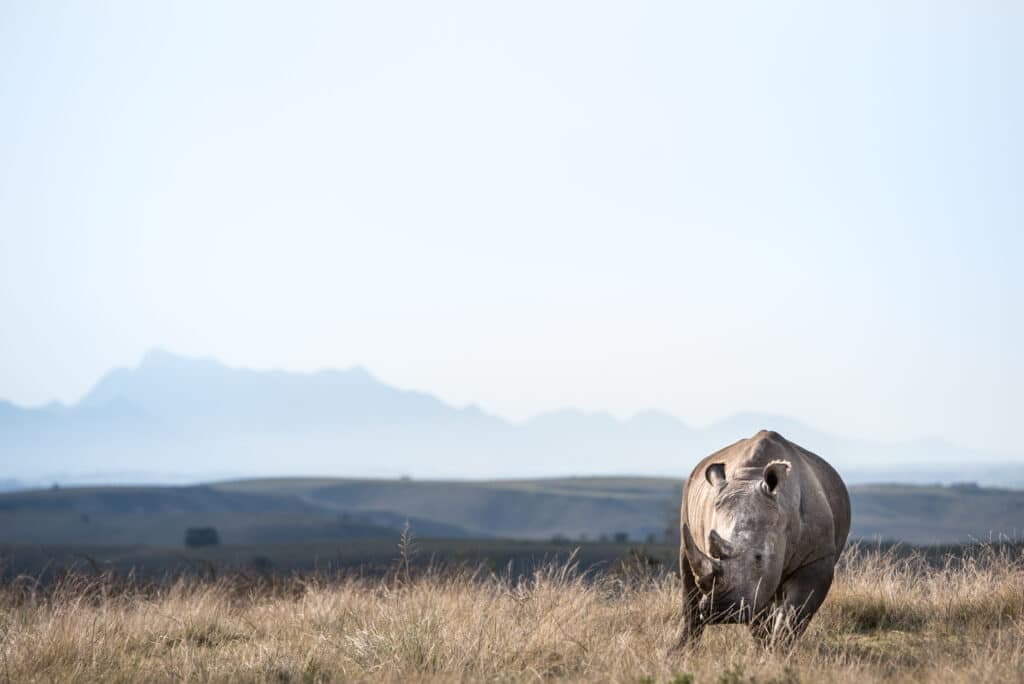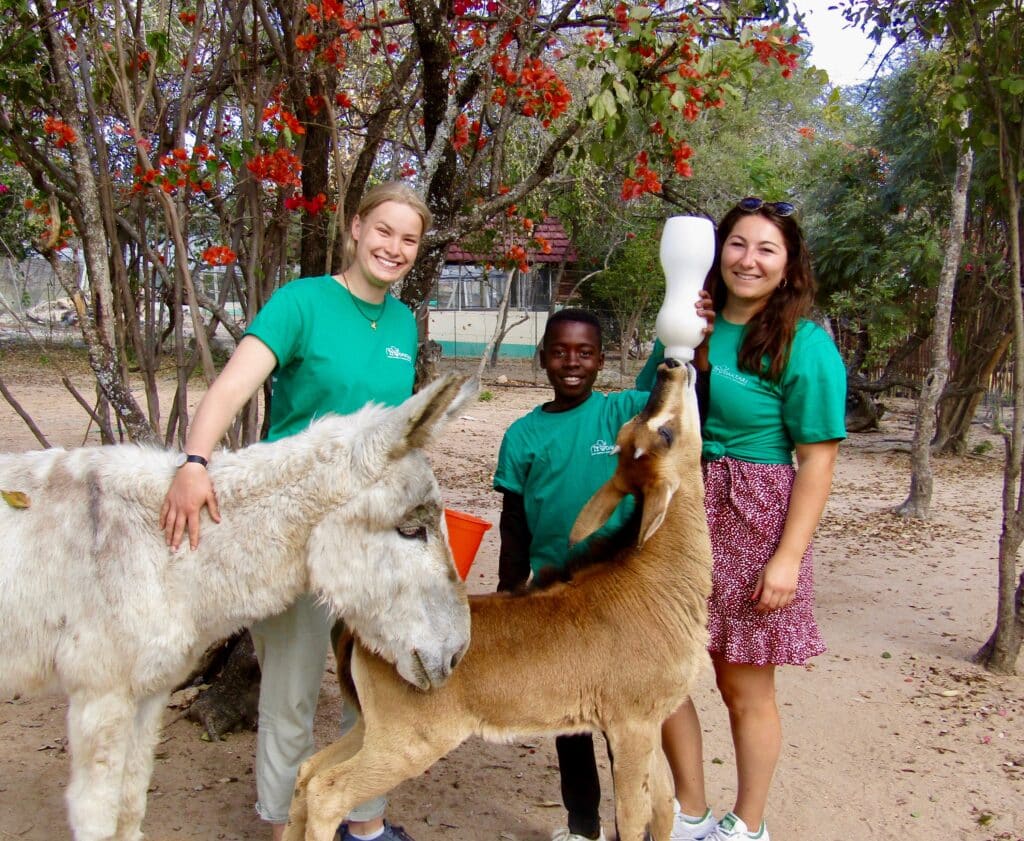Endangered species research in South Africa. Immersed in the South African bush, protect and study emblematic wild animals such as rhinos, elephants and leopards, accompanied by researchers and veterinarians. All volunteer programs in South Africa here.
Endangered species research in South Africa
Notre partenaire développe des projets de protection de la faune sauvage en Afrique du Sud et des programmes de volontariat. Le directeur de l’organisation a passé plus de dix ans à travailler dans le domaine de la conservation au niveau international, sur différents projets de recherche. Il pense que s’immerger dans le monde sauvage tout en le protégeant la nature constitue l’expérience de voyage la plus authentique qui soit, car elle donne un sentiment d’accomplissement.
Watergerg region in a nature reserve
Our partner works with universities, particularly in the UK, to structure the programs it offers. Its practices are aligned with those of quality institutions and internationally accredited organizations. In this way, trainees and volunteers gain skills in wildlife conservation, while giving back to the community. The endangered wildlife program focuses on monitoring and tracking animals such as rhinos, leopards and other animals living in the South African bush. You'll be living in the Watergerg region, within a 35,000-hectare nature reserve that's home to iconic species such as lion, leopard, elephant, rhino and buffalo.
Volunteers take part in reserve activities
The endangered species volunteer program takes place in a 35,000-hectare nature reserve in the Waterberg region.
Here are the projects you'll be working on during your stay. Of course, activities vary according to the needs of the moment.
White rhino monitoring and research
The reserve is a sanctuary for black and white rhinos. There's even a small herd living right next to your research camp! If the health of one of the rhinos requires intervention, you'll be part of the team that goes to treat the animal.
Wildlife research and monitoring
You'll observe wild animals either visually or using a laser rangefinder or radio collar. Lions, cheetahs, elephants and buffalo are all monitored as part of reintroduction projects. Understanding how animals behave, move and function in their ecosystems is essential to ensuring their health and prosperity.
Veterinary care
Rhinos may fight over territory. You'll accompany the vets as they intervene.
Working with photographic traps
Camera traps are invaluable tools for any ecologist or animal behaviorist. You'll learn how to select sites for camera traps. You'll collect their data. These studies are part of a long-term research project on the reserve, focusing on animals such as the black rhinoceros and the leopard...
Flora study
Flora is very important to the balance of the ecosystem. While observing grasses may not be as exciting for some as watching elephants or the work of veterinarians, it's no less important!
Predator monitoring
The reserve is home to predators such as lions, leopards, hyenas, cheetahs and many more! You'll monitor their behavior, what they eat, when and where. You'll record this data for ongoing research and ecological management.
Feeding big game
During periods of drought, which are intensifying with climate change, animals in fenced reserves often need help to get through the tough times. You'll be helping to feed some of the wild animals, such as elderly rhinos who can no longer move around in search of food, or even newly-introduced buffalo who are still getting to know the area.
Dates
- From 2 to 12 weeks
- All year round
- Volunteers usually start and finish on weekends.
Rates
- 2 weeks: 1245 £ or approximately 1494 €.
- 3 weeks: 1675 £ or approximately 2008 €.
- 4 weeks: 2080 £ or approximately 2407 €.
- 5 weeks: 2575 £ or approximately 3087 €.
- 6 weeks: 3035 £ or approximately 3639 €.
- 7 weeks: 3485 £ or approximately 4178 €.
- 8 weeks: 3875 £ or approximately 4646 €.
- 9 weeks: 4260 £ or approximately 5107 €.
- 10 weeks: 4570 £ or approximately 5479 €.
- 11 weeks: £4935 (approx. €5916)
- 12 weeks: 5320 £ or approximately 6378 €.
The price in € varies according to the exchange rate.
Included in price
- Housing
- Transportation in South Africa (airport pick-up and drop-off)
- Food and drinks at camp
- Equipment
- Site entrances during project participation
- Wi-Fi access
- 24-hour on-site emergency assistance
- List of other volunteers to be sent before the start of the course
Not included in price
- Airline tickets
- Visas or immigration fees
- Vaccinations or medical requirements
- Travel insurance
- Optional activities
- From age 18
- From 2 to 12 weeks
- Suitable physical condition (walking up to 5 km a day/riding in a vehicle)
- Language: English at intermediate or conversational level
- Have the appropriate vaccinations to travel to South Africa
- Appropriate travel insurance for South Africa
- Visas required for travel to South Africa.
- Although a university education or professional skills and experience are useful for our projects, they are not necessary.
- Be passionate about wildlife, conservation and community development!
Location
The reserve covers 35,000 hectares and is home to over 5,000 species of plants and animals. The research camp is your base of operations. It's from here that you'll take part in projects as a volunteer. The camp is fully fenced in for security reasons.
Housing
You'll stay in tents built in the camp. You'll be lulled to sleep by the sounds of the bush. Each tent is shared by 2 or 3 people of the same sex. Tents are equipped with beds, bedding, storage space, lighting and electrical outlets. If you have special sleeping needs due to medical or personal circumstances, or if you are a couple and require an alternative sleeping arrangement, please let us know when you make your booking. There are numerous toilets and showers throughout the camp, all with locked doors for privacy and security.
Food
The camp kitchen is very well equipped, with multi-stage gas stoves, an oven for cooking for large groups, kettles for tea and coffee, microwaves, a fridge, large freezers, cupboards and storage, and drinking water at all times. Volunteers take turns cooking and cleaning for the group. Let the team know if you have any allergies or are on a special diet.
Laundry
You'll need to do your own laundry. A washing machine and detergent are available on site. Most volunteers do their laundry once a week, using the outside clotheslines.
Wi-Fi
The camp has Wi-Fi that all volunteers can use. Its power is sufficient to send emails, WhatsApp messages or even voice and video calls to friends and family back home, as well as to stream programs.
- You'll enjoy an immersive experience in the heart of the South African bush, in a reserve populated by iconic wild animals such as rhinos, elephants, leopards...
- You'll develop your wildlife skills with the researchers and veterinarians you'll be working with in the field.
- Your action will have a positive impact on the preservation of flora and fauna in South Africa.
All reviews of Hamba Africa
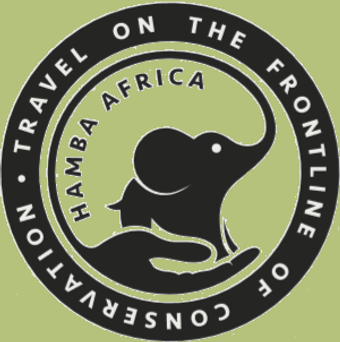
About the partner
Hamba Africa est une organisation qui existe depuis 2017. Elle est détenue et gérée par des guides de safari et des défenseurs de l’environnement. L’organisation partenaire développe ses propres projets de recherches et soutient d’autres organisations à travers l’Afrique du Sud. Leur mission est de mener des recherches sur la faune et la flore en Afrique du Sud en faveur d’un développement durable. A travers les programmes de volontariat, Hamba Africa permet à des volontaires ou des étudiants d’acquérir de nouvelles compétences et connaissances. Les missions Hamba Africa

